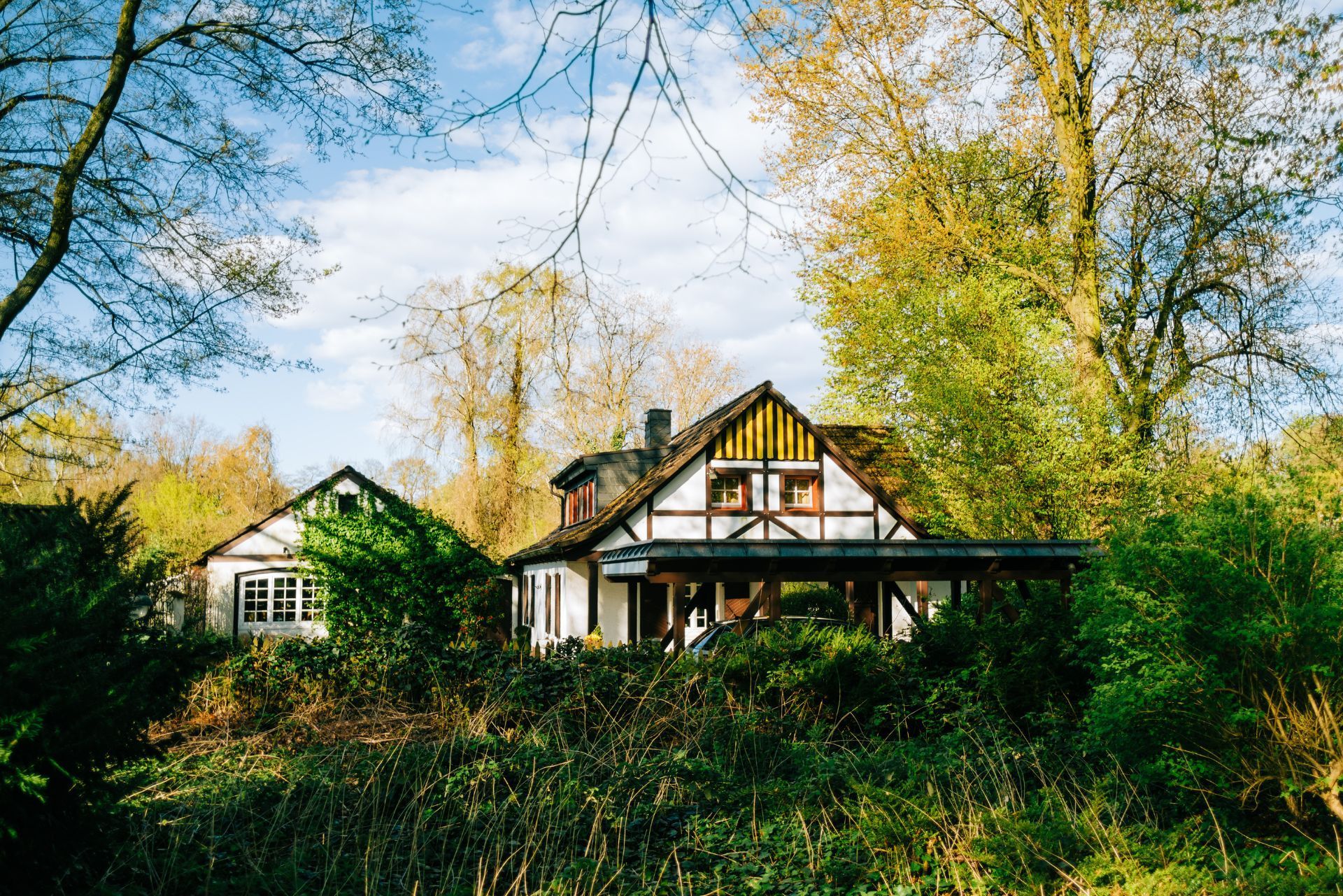Top 3 Recommended Policies

By: David Graves
Licensed Personal Insurance Specialist
425-320-4280
Owning a home in Bellevue, Washington, is a dream for many. With its vibrant community, beautiful landscapes, and proximity to Seattle, Bellevue offers an exceptional quality of life. However, protecting your investment with the right home insurance is essential. This comprehensive guide covers everything you need to know about home insurance in Bellevue, from understanding local risks to choosing the best policy for your needs.
Understanding the Importance of Home Insurance in Bellevue
Home insurance is more than just a legal formality or a financial safety net—it’s a critical component of responsible homeownership. In Bellevue, where property values are among the highest in Washington state, safeguarding your home against unexpected events is crucial.
According to the National Association of Insurance Commissioners (NAIC), the average homeowner’s insurance premium in Washington state was approximately $1,200 annually in 2023, slightly below the national average of $1,300. However, Bellevue’s premiums tend to be higher due to its urban setting and higher property values. This discrepancy highlights the importance of understanding your specific coverage needs and the factors that influence your premium rates.
Home insurance protects you from financial loss caused by damage to your home or belongings, liability claims, and additional living expenses if your home becomes uninhabitable. Without adequate coverage, homeowners risk facing significant out-of-pocket expenses in the event of fire, theft, natural disasters, or accidents. Furthermore, having a solid policy can provide peace of mind, allowing homeowners to focus on enjoying their property rather than worrying about potential risks.
Why Bellevue’s Unique Environment Affects Home Insurance
Bellevue’s location in the Pacific Northwest means homeowners face specific environmental risks. While the city is not prone to hurricanes or tornadoes, it does experience heavy rainfall, occasional flooding, and seismic activity due to its proximity to the Cascadia Subduction Zone. The region's lush greenery and beautiful landscapes come with their own set of challenges, making it essential for homeowners to stay informed about their insurance options.
Flooding is a notable concern, especially in low-lying areas near Lake Washington and local creeks. Standard home insurance policies typically do not cover flood damage, so homeowners may need to purchase separate flood insurance through the National Flood Insurance Program (NFIP) or private insurers. This additional coverage can be a lifesaver, as flood damage can lead to costly repairs and extensive cleanup efforts. Homeowners should also be aware of the local flood zones and consider investing in mitigation strategies, such as proper drainage systems and landscaping, to reduce their risk.
Earthquake risk is another factor to consider. While Washington state has earthquake coverage options, many standard policies exclude this. Given the potential for seismic events, Bellevue homeowners should evaluate their earthquake insurance needs carefully. The cost of earthquake insurance can vary significantly based on the home's location, age, and construction type. Homeowners may also want to invest in retrofitting their homes to withstand earthquakes better, which can not only enhance safety but may also lead to lower insurance premiums in the long run. Additionally, understanding the local building codes and regulations regarding earthquake preparedness can help homeowners make informed decisions about their insurance and property safety.
Key Components of Bellevue Home Insurance Policies
Understanding what a typical home insurance policy covers is essential to ensure you have adequate protection. Most policies in Bellevue include several core components, but additional endorsements or riders may be necessary depending on your circumstances.
Dwelling Coverage
This part of the policy covers the physical structure of your home, including walls, roof, and built-in appliances. It protects against perils such as fire, windstorms, hail, vandalism, and certain types of water damage. In Bellevue, where homes often feature modern designs and high-end materials, ensuring your dwelling coverage reflects the true replacement cost is vital. Homeowners should also consider the unique architectural features that might not be easily replaceable, such as custom cabinetry or specialty roofing materials, which can significantly impact the overall cost of rebuilding.
Personal Property Coverage
Personal property coverage protects your belongings inside the home, such as furniture, electronics, clothing, and other valuables. In Bellevue, where many residents have high-value items, it’s important to inventory possessions and consider additional coverage for expensive jewelry, art, or collectibles. Additionally, some policies may offer replacement cost coverage rather than actual cash value, which means you would receive the full amount needed to replace lost items without depreciation, making it a crucial consideration for homeowners with significant investments in personal property.
Liability Protection
Liability coverage protects you if someone is injured on your property or if you accidentally cause damage to someone else’s property. This coverage can help pay for legal fees and medical expenses. Given Bellevue’s active community lifestyle, liability protection is a critical component of any home insurance policy. Homeowners should also be aware of the potential risks associated with hosting gatherings or having pets, as these can increase the likelihood of accidents. Some policies may offer additional liability coverage for specific activities, such as owning a swimming pool or trampoline, which can be beneficial in mitigating risks.
Additional Living Expenses (ALE)
If your home becomes uninhabitable due to a covered loss, ALE coverage helps pay for temporary housing, meals, and other living costs. This can be a lifesaver during repairs or rebuilding. Bellevue’s high cost of living means ALE limits should be carefully reviewed to ensure they are sufficient. It’s advisable to discuss with your insurer the specific limits and duration of ALE coverage, as these can vary significantly between policies. Additionally, keeping receipts and documentation of expenses incurred during this time can help streamline the claims process and ensure you receive the full benefits of your coverage.
Optional Coverages and Endorsements
Depending on your home’s location and specific risks, you may want to add optional coverages such as:
- Flood Insurance: Essential for homes in flood-prone areas.
- Earthquake Insurance: Important given the seismic risk in the region.
- Sewer Backup Coverage: Protects against damage caused by sewer or drain backups, a common issue in rainy climates.
- Water Damage Coverage: Covers damage from accidental leaks or plumbing failures.
Additionally, homeowners might consider endorsements for home-based businesses, which can provide coverage for
equipment and liability related to running a business from home. As the trend of remote work continues to rise, this coverage can be particularly relevant for Bellevue residents who may have invested in office equipment or inventory. Understanding the nuances of these optional coverages can help tailor a policy that meets your specific needs and provides peace of mind in an ever-changing environment.

Factors Influencing Home Insurance Rates in Bellevue
Several factors affect how much you’ll pay for home insurance in Bellevue. Understanding these can help you make informed decisions and find ways to reduce premiums without sacrificing coverage.
Home Value and Replacement Cost
The higher the value of your home and the cost to rebuild it, the higher your premiums will be. Bellevue’s real estate market is among the most expensive in the state, with median home prices exceeding $1 million in 2024. Ensuring your dwelling coverage matches the true replacement cost—not just market value—is key. Additionally, it’s important to consider that the cost of materials and labor can fluctuate, especially in a booming market like Bellevue, where demand for construction services can drive up prices. Regularly reviewing and updating your policy to reflect these changes can help ensure that you are adequately covered in the event of a loss.
Location and Neighborhood
Homes located near water bodies, in flood zones, or in areas with higher crime rates may face increased premiums. Bellevue’s diverse neighborhoods vary in risk profiles, so insurers assess location carefully. Proximity to fire stations and hydrants can also influence rates positively. Furthermore, neighborhoods with well-maintained infrastructure and community programs aimed at crime reduction may benefit from lower insurance costs. Insurers often look at local statistics, such as the frequency of natural disasters or the historical data on claims, to determine the risk associated with specific areas, which can significantly impact your premium.
Home Age and Construction Type
Newer homes with modern materials and updated electrical and plumbing systems typically cost less to insure. Older homes or those with outdated systems may require higher premiums due to increased risk of damage or claims. Moreover, the construction type plays a crucial role; homes built with fire-resistant materials or those that have undergone renovations to improve safety features may qualify for discounts. It's advisable for homeowners to invest in upgrades that not only enhance the living experience but also make the property more insurable, such as installing a new roof or modernizing the heating system.
Claims History
Your personal claims history and the claims history of the property affect rates. Multiple claims can signal higher risk to insurers, leading to increased premiums or policy non-renewal. Additionally, if the home has a history of frequent claims, even if they were not filed by you, it may still impact your ability to secure affordable coverage. Insurers often review the claims history of the property for several years, so maintaining a good record and addressing potential issues proactively can be beneficial. Homeowners should also consider preventive measures, such as regular maintenance checks, to minimize the likelihood of future claims.
Deductibles and Coverage Limits
Choosing a higher deductible usually lowers your premium but increases out-of-pocket costs in a claim. Balancing deductible levels with your financial comfort is essential when selecting coverage limits. Additionally, understanding the different types of coverage available—such as liability, personal property, and additional living expenses—can help you tailor your policy to your specific needs. Some homeowners opt for umbrella policies to provide extra liability coverage beyond their home insurance, which can be a cost-effective way to enhance protection without significantly increasing premiums. It’s crucial to evaluate your lifestyle and assets to determine the right coverage levels that will provide peace of mind in case of unexpected events.
How to Choose the Right Home Insurance Provider in Bellevue
Selecting a reputable and responsive insurance company is as important as choosing the right coverage. Bellevue homeowners should consider several factors when evaluating providers.
Financial Strength and Reputation
Check the financial ratings of insurers through agencies like A.M. Best, Moody’s, or Standard & Poor’s. A strong financial rating indicates the company’s ability to pay claims promptly. Additionally, research customer reviews and complaint records via the Better Business Bureau or the Washington State Office of the Insurance Commissioner. It’s also wise to ask friends and family for their recommendations, as personal experiences can provide valuable insights into the reliability and service quality of various providers.
Local Expertise and Customer Service
Insurers with local agents in Bellevue can provide personalized guidance and quicker claim handling. Good customer service and clear communication are vital, especially during stressful times following a loss. Local agents often understand the specific risks associated with the Bellevue area, such as potential flooding or earthquake hazards, and can help you navigate these concerns effectively. Furthermore, having a local point of contact can make the process of filing claims and managing your policy much more convenient and responsive.
Policy Options and Flexibility
Look for companies offering customizable policies with optional endorsements that suit Bellevue’s unique risks. Flexibility allows you to tailor coverage to your home’s specific needs. For instance, you might want to consider additional coverage for valuable items like jewelry or art, or even for home-based businesses. Many providers also offer specialized policies for older homes, which may require different considerations due to their construction materials and historical significance.
Discounts and Savings
Many insurers offer discounts for bundling home and auto insurance, installing security systems, or having a claims-free history. Inquire about available discounts to reduce your premiums. Additionally, some companies may provide incentives for participating in home safety programs or for being a member of certain organizations, such as alumni associations or professional groups. Taking the time to explore all available discounts can lead to significant savings over the life of your policy, making it easier to find a plan that fits both your coverage needs and budget..
Steps to Obtain and Maintain Home Insurance in Bellevue
Securing the right home insurance policy involves several important steps. Following these can help ensure you’re adequately protected and prepared for the future.
1. Assess Your Coverage Needs
Begin by evaluating your home’s value, the contents inside, and your risk tolerance. Consider environmental factors like flood or earthquake risk specific to Bellevue.
2. Shop Around and Compare Quotes
Obtain quotes from multiple insurers to compare coverage options, premiums, deductibles, and customer service. Use online tools or work with a local insurance agent familiar with the Bellevue market.
3. Review Policy Details Carefully
Read the fine print to understand what is covered and what is excluded. Pay special attention to limits on personal property, liability coverage, and optional endorsements.
4. Purchase and Document Your Policy
Once you select a policy, keep a copy of your insurance documents and inventory of your belongings. Photograph or video your home and valuables for claims purposes.
5. Update Your Policy as Needed
Life changes such as renovations, purchasing new valuables, or changes in risk factors require updating your policy. Regularly review your coverage to ensure it remains adequate.
Common Bellevue Home Insurance Claims and How to Avoid Them
Understanding common claims can help homeowners take preventive measures to reduce risk and maintain lower premiums.
Water Damage and Sewer Backups
Due to Bellevue’s rainy climate, water damage is a frequent cause of claims. Regular maintenance of gutters, downspouts, and sump pumps can prevent leaks and backups. Installing backflow valves can protect against sewer backups.
Theft and Vandalism
While Bellevue is generally safe, property crime can occur. Installing security systems, outdoor lighting, and secure locks can deter intruders and reduce insurance costs.
Fire Damage
Fire remains a significant risk. Bellevue residents should maintain smoke detectors, have fire extinguishers accessible, and create defensible space around homes to reduce wildfire risk.
Wind and Storm Damage
Strong winds and storms can cause roof and window damage. Regular roof inspections and trimming trees near your home can minimize damage.
Additional Resources for Bellevue Homeowners
Homeowners in Bellevue can access several resources to better understand and manage their home insurance needs.
- Washington State Office of the Insurance Commissioner: Offers consumer guides, complaint filing, and educational materials specific to Washington insurance policies.
- National Flood Insurance Program (NFIP): Provides flood insurance options and flood zone maps.
- Bellevue Fire Department: Offers fire prevention tips and community safety programs.
- Local Insurance Agents: Experienced professionals who understand Bellevue’s unique market and can offer personalized advice.

Conclusion
Home insurance in Bellevue, WA, is a vital safeguard for one of your most valuable assets. By understanding the unique risks in the area, the components of a comprehensive policy, and how to choose the right insurer, homeowners can protect their investment and enjoy peace of mind. Regularly reviewing and updating your coverage ensures you stay prepared for whatever the future holds in this dynamic and beautiful city.

